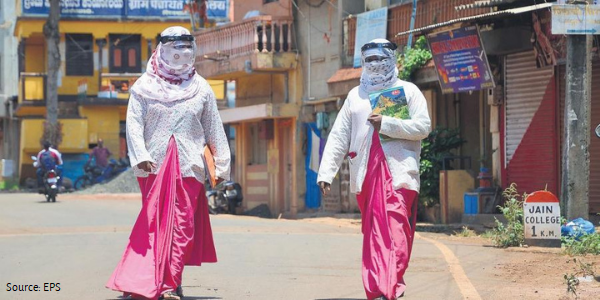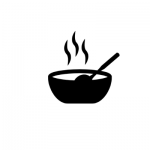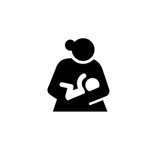
‘Behaviour of People towards Each Other has Changed’
27 May 2021
The ‘Inside Districts’ series launched in April 2020 is a one-of-its-kind attempt to capture the experiences of district and Block-level officials, panchayat functionaries, beneficiaries, and frontline workers, on their challenges and best practices.
As the second wave hits India in 2021, and given the unprecedented situation, we will also be capturing the experiences of staff from the 5 states in which we have a permanent presence. These are Bihar, Himachal Pradesh, Maharashtra, Madhya Pradesh, and Rajasthan. We will be publishing insights from NGO efforts as well.
This interview was conducted with Indresh Sharma who is a Senior PAISA Associate at the Accountability Initiative, Centre for Policy Research. He lives in the Solan district of Himachal Pradesh.
Q: Have you been vaccinated in the 18+ category? If yes, when, where, and what was the procedure like?
Indresh: Not yet. I have registered online, but no slot is available right now. Even people who are able to get appointments are being allotted centres that are located far from here.
Q: Have you been told of arrangements made by the local administration for people who are very sick?
Indresh: If someone falls very sick then the Block Medical Officer is informed through the Auxiliary Nurse Midwife (ANM). The person is taken to the institutional quarantine centre where doctors and other supporting staff are available.
ASHA workers and ANMs have been informing people about these arrangements.
Q: If there was a sick member in your family, what kind of healthcare arrangements were provided to you by the government?
Indresh: Last year, my brother was COVID-19 positive. He was given medications. However, no institutional arrangement was there that time for patients to be shifted in the case of an emergency situation.
An institutional quarantine centre was made in the beginning (during the first wave) at the sub-district level, but it was closed later on when cases started decreasing. All COVID-19 patients were asked to stay at home and isolate thereafter.
Q: Do you know of other instances where COVID-19 patients were able to access healthcare or oxygen? How did they do this in your village?
Indresh: COVID-19 cases have increased in my village and people are scared of getting tested. A couple tested positive here and the woman’s oxygen level had dropped. However, due to a large number of COVID-19 cases in hospitals, she sourced an oxygen cylinder for herself.
Q: How are cases being discovered? What steps are Frontline Workers (ASHAs, ANMs) and the government administration taking once cases are found?
Indresh: The people who are coming to the village from outside are instructed by the ASHA workers to isolate at home. They are also instructed to get themselves tested in case of any symptoms.
ASHA workers visit the houses of COVID-19 patients to give them a kit of medicines. They guide the patients on the usage of masks and sanitisers, and how to self-isolate at home properly.
As per government guidelines, in Himachal Pradesh COVID-19 patients were asked to quarantine for 17 days earlier, but the number of days has now been reduced to 10.
The Block Development Officer has also asked Panchayat representatives to form a ‘COVID Committee’ in each ward. The committee has been given the responsibility to raise awareness among people at the ward level.
Q: Your wife is an ASHA worker. Have you seen any challenges due to the pandemic?
Indresh: She has been facing multiple challenges in the pandemic. Her workload has increased a lot but she receives very little honorarium for it. Last year, she had to get a form signed from COVID-19 patients, where they gave details of kin who were their primary caretakers, but she was not given any kit to protect herself for this task. When this was opposed by ASHA workers, the government said that it was no longer necessary to get the form signed.
Also, the behaviour of people in the village towards each other has changed a lot. I have seen that if there is a COVID-19 patient in the house, extended relatives and community members stop talking to the family.
In a situation like this, I think we should help each other while taking the necessary precautions, and keep humanity alive.
Q: Are Anganwadi centres functional in your village? What services are they providing?
Indresh: No, Anganwadi centres are closed. Take Home Ration (THR) is being given to the beneficiaries though. One person from a family goes to the Anganwadi centre to collect the THR.
Q: Are there any other government services that have been affected? What are they? What is the impact?
Indresh: Public education has been affected by the pandemic. Schools are closed and not all children have the necessary resources for online education.
Anganwadi centres are also closed. Important procedures – like weighing children – are not happening anymore.





